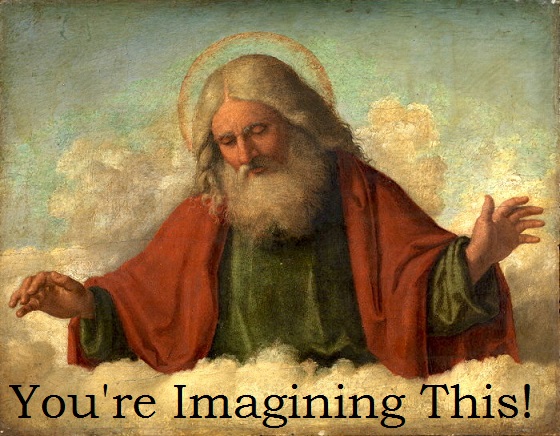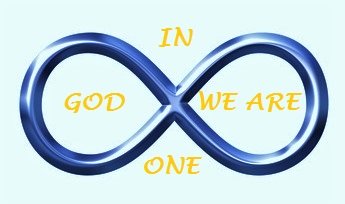Our Beliefs Influence and Create

Our Collective and Individual Belief Systems Are Precious to Us
Belief wields an undeniable influence over our lives, shaping them in ways that often elude our full understanding. Our individual and collective belief systems serve as the lenses through which we perceive the world, filtering our experiences and molding our outlook. These beliefs are precious, bestowing upon us structure, meaning, and purpose in an otherwise intricate and bewildering universe.
In the grand tapestry of existence, what we commonly label as "reality" is, in truth, a consensus trance. This trance isn't imposed upon us but is a construct woven together by the beliefs and perspectives of the societies and cultures we are part of. It's the shared narrative we all embrace, painting our perception of reality.
Take a moment to contemplate how our beliefs about money, success, and happiness are molded by this consensus trance. Society dictates that amassing wealth and material possessions equates to success and happiness. Consequently, many individuals dedicate their lives to chasing these external markers, convinced they hold the key to a fulfilling existence. This consensus trance can be so pervasive that we often forget to question its validity.
Enter the concept of "groupthink," where individuals within a group tend to conform to prevailing attitudes and beliefs. It's a potent force that fortifies our collective consensus trances and the accompanying beliefs. When everyone around us shares similar convictions and viewpoints, challenging the status quo becomes increasingly daunting.
Consider the societal norms surrounding career choices. If everyone in your social circle firmly believes that pursuing a stable, well-paying job is the sole path to success, exploring alternative career avenues aligned with your true passions becomes an uphill battle. Groupthink stifles creativity and innovation, limiting our potential for personal growth and fulfillment.
While the notion that our beliefs shape our reality isn't groundbreaking, it remains a profound and sometimes challenging concept to embrace. Throughout history, spiritual and philosophical traditions have delved into the mind-reality relationship. From ancient Buddhist teachings to contemporary interpretations of the law of attraction, the idea that we significantly influence our experiences has been a recurring theme.
Numerous self-help books expound on the power and importance of beliefs, offering practical tools and insights for harnessing belief's potential to transform one's life. Nevertheless, merely reading about this concept falls short; belief, like any skill, demands practice and unwavering application.
So, why bother understanding and harnessing the power of belief? It transcends the pursuit of wealth or external success. Instead, it's about gleaning wisdom from our self-created experiences and evolving as individuals. Life presents us with a multitude of situations and challenges, each offering opportunities for growth and self-discovery.
When adversity strikes, it's natural to feel like a victim. However, accepting that we often victimize ourselves through our beliefs and perceptions requires a shift in perspective, a willingness to shoulder responsibility for our experiences, and a commitment to self-awareness.
In such instances, our habitual questions should shift towards self-inquiry: "What can I learn from this?" or "What is this experience endeavoring to teach me?" Especially when recurring patterns surface throughout our lives.
To fully embrace the idea that our beliefs shape our experiences, we must cultivate the habit of mindfully asking constructive questions. Instead of letting our ego-mind unleash criticism or fear-inducing associations automatically, we can choose to approach our experiences with curiosity and openness.
When confronted with challenges, we can ask ourselves, "What do these experiences reveal about my beliefs and myself?" By reframing our experiences as opportunities for self-reflection and growth, we empower ourselves to take charge of our reality.
Imagine an individual repeatedly entangled in toxic relationships. Rather than perpetually seeing themselves as victims, they can opt to inquire, "What recurring patterns in my beliefs or behaviors lead to these situations?" This shift in perspective opens the door to self-awareness and the potential for transformation.
In conclusion, the significance of belief in shaping outcomes extends beyond amassing wealth or external success. It's about acknowledging the power of our collective and individual belief systems in molding our reality. By recognizing that our perception of the "real world" is a consensus trance, we can begin to question and reshape our beliefs. Through mindful exploration and a dedication to learning from our self-created experiences, we can harness belief's profound potential to evolve as individuals in the vast, multidimensional universe we inhabit. So, the next time life presents a challenge, ask yourself, "What is this experience trying to teach me?" Your journey of self-discovery may hold the key to manifesting a more fulfilling and meaningful existence in the endlessly expansive universe.
Your Belief System Has Power
"I knew this would happen!" "Why does this always seem to happen in my life?" "Nothing is ever easy!" These phrases vividly demonstrate the significant impact of individual beliefs, frequently leading to unfavorable outcomes.
Individuals often labeled as "malevolent" sorcerers skillfully harness the power of their personal beliefs, honing their abilities with great discipline to manifest potent consequences. They establish a connection with the Source, meticulously employing belief systems and engaging with the dis-incarnate entities born from their own ego-minds, as well as those of others. Nevertheless, it's imperative to acknowledge the substantial karmic repercussions that accompany such practices.
In essence, we are all innate sorcerers, for we are creative extensions of the One Holy Source.
The profound influence of both individual and collective beliefs is strikingly evident across various domains, encompassing goal attainment, meditation, hypnosis, prayer, astrology, voodoo, religious belief systems in general, and every facet of life for those who maintain a vigilant perspective.
Harness the power of collective belief with mindfulness. The lotus blossom imagery gracing the bottom of this website's pages serves as a visual testament to the potential of collective belief in achieving positive outcomes.
While some captivating beliefs may indeed be alluring, they often act as distractions, impeding our spiritual awakening.
As we traverse our spiritual journeys, we may encounter numerous enticing diversions. Yet, it's crucial to bear in mind that time is abundant and at our disposal.
Having Fun with Beliefs
The Influence of Beliefs on Our Reality
Beliefs serve as the invisible threads that weave the fabric of our reality, influencing our perceptions, guiding our decisions, and ultimately shaping the course of our lives. But what if we could have fun with our beliefs? What if we could consciously choose and transform them using techniques from neuro-linguistic programming (NLP) and hypnotherapy? This essay delves into the fascinating world of beliefs, exploring how we can intentionally reshape them to create a more fulfilling and joyful existence.
Understanding the Power of Beliefs
Beliefs are the deeply ingrained convictions and assumptions that govern our thoughts, emotions, and behaviors. They act as the lenses through which we view the world, filtering our experiences and dictating our reactions. Whether it's our beliefs about ourselves, our capabilities, or the nature of reality, they hold immense power over our lives.
The significance of beliefs becomes evident when we consider the placebo effect—a phenomenon where individuals experience real improvements in their health or well-being after receiving a fake treatment simply because they believe it to be genuine. This remarkable demonstration of the mind's influence highlights the potential for conscious belief transformation.
Neuro-Linguistic Programming (NLP): Rewiring Beliefs
Neuro-Linguistic Programming, often referred to as NLP, is a powerful approach to understanding and modifying human behavior, communication, and perception. Developed in the 1970s by Richard Bandler and John Grinder, NLP explores the interplay between neurology (neuro), language (linguistic), and patterns of behavior and emotion (programming). NLP practitioners have devised techniques to help individuals identify and reframe limiting beliefs, ultimately leading to personal growth and empowerment.
One of the fundamental principles of NLP is that individuals have the ability to change their subjective experience by altering their mental representations. In other words, we can choose how we perceive and respond to the world around us. By consciously reshaping our beliefs, we open the door to a more enjoyable and fulfilling life.
Hypnotherapy: Exploring the Subconscious
Hypnotherapy is another invaluable tool for examining and modifying our beliefs. Hypnotherapists guide individuals into a state of deep relaxation and heightened suggestibility, known as a trance, where the conscious mind takes a back seat, allowing access to the subconscious. In this state, individuals can explore and reprogram deeply ingrained beliefs that may be holding them back.
The power of hypnotherapy lies in its ability to bypass the critical conscious mind and access the fertile ground of the subconscious, where beliefs are deeply rooted. By engaging with the subconscious, individuals can uncover and transform limiting beliefs into empowering ones, leading to positive changes in their thoughts, feelings, and behaviors.
Embracing Belief Transformation with Joy
Now, let's explore how we can have fun with our beliefs using techniques from NLP and hypnotherapy:
- Self-Reflection: Begin by engaging in introspection to identify your existing beliefs. What beliefs are serving you well, and which ones are holding you back? Take time to journal and reflect on your thoughts and emotions surrounding specific areas of your life, such as relationships, career, or personal growth.
- Mindful Awareness: Practice mindfulness to become more aware of your beliefs as they arise in everyday situations. Observe the thoughts that trigger certain emotions and behaviors. By cultivating mindfulness, you can catch limiting beliefs in action and choose to respond differently.
- Affirmations: Create positive affirmations that challenge and replace limiting beliefs. For example, if you hold a belief that you are not capable of achieving your goals, reframe it into an affirmation like, "I am fully capable of achieving my goals." Repeatedly affirming these positive beliefs can gradually rewire your subconscious.
- Visualization: Utilize visualization techniques to vividly imagine yourself living the beliefs you want to adopt. Immerse yourself in these mental scenarios, incorporating all senses. Visualization can help reinforce new beliefs by making them feel real and attainable.
- Anchoring: NLP practitioners use anchoring to associate specific feelings or states of mind with particular gestures, sounds, or visual cues. You can create positive anchors to trigger empowering beliefs. For example, touching your thumb and index finger together can be your anchor for confidence.
- Hypnotherapy Sessions: Consider working with a certified hypnotherapist to delve deeper into your beliefs and make profound changes at the subconscious level. Hypnotherapy sessions can be enjoyable and transformative experiences, allowing you to rewrite your beliefs in a supportive environment.
- Playfulness: Approach the process of belief transformation with a sense of playfulness and curiosity. Imagine it as a game where you get to design your own reality. Embrace the joy of discovering new beliefs and the excitement of seeing positive changes manifest in your life.
In Conclusion: Your Beliefs Shape Your Reality
Our beliefs are not fixed, unchangeable truths but rather malleable constructs that can be consciously shaped and transformed. By embracing the techniques developed by NLP practitioners and hypnotherapists, we have the tools to have fun with our beliefs and choose them mindfully. This process is not only empowering but also liberating, as it opens the door to a more joyful, fulfilling, and authentic existence. So, let's embark on this exciting journey of belief exploration and transformation, and remember that the power to create our reality lies within our own minds.

